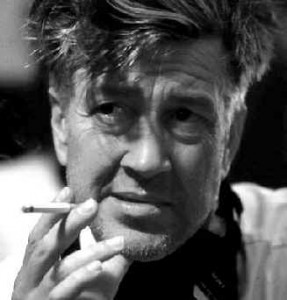
David Lynch
20th January 1946 was the day the great film maker David Lynch was born. Raised in a family with Finish roots, and with an education following the commandments of the Presbyterianism, Lynch spent his childhood travelling all across the interior of the United States, and soon revealed his inclination towards the artistic field, expressing his wish to become a painter.
This attraction for the visual arts, would later be a core element of his cinematographic work, where the visual elements and the plasticity of the images are a constant and important presence, in movies where several visual and sound elements are combined, in order to create a final product in which every detail is relevant.
A trip to Europe in the 1960’s was a turning point in young Lynch’s future career, who would become one of the most highly regarded movie directors of the modern era. When he returned to the USA, Lynch started studying painting in the Pennsylvania Academy of the Fine Arts; however, his studies didn’t originate paintings as expected, but instead he directed 4 short-films, between 1966 and 1974.
His bizarre and dream-like language, with a strong visual component, where already present in his first works in the movie area, and became even more apparent in his first long-film, “Eraserhead”, that was released in 1977, not making a notorious impact among the public or specialized critic.
Only 3 years after, Lynch presents “The Elephant Man”, a movie acclaimed by critics, and that granted him 8 Oscar nominations, including for Best Director.
Since the beginning, his career was marked by constant ups and downs, with successful movies followed by production that received no attention, or worse, that were highly criticized; besides his main work has director, David Lynch has also made some attempts as screenwriter, producer, actor and even musician.
In 1984, Lynch’s movie “Dune”, based on the science fiction book with the same name, was a flop both among the public and critics. However, shortly after, in 1986, David Lynch presents “Blue Velvet”, in which he assumed the roles of screenwriter and director, a movie that is considered a mark in the history of cinema, both because of the themes it dealt with, as well as because of the mix of genres one can find in the film.
In 1990, David Lynch debuted as a TV director, with the series “Twin Peaks” that would became a huge success not only in the USA, but also in many other countries, which would lead to the adaptation of the series to the big screen in 1992, with the release of the movie “Twin Peaks: Fire Walk With Me”. In 2017, a second part of the series “Twin Peaks” premiered, and Lynch was once again responsible for the direction of all episodes.
Throughout the 1990’s and in the early 2000’s, Lynch continued to invest on his career as a director, having achieved great success with movies like “Wild At Heart”, “Lost Highway” or the big hit “Mulholland Drive”.
In 2002, David Lynch embraces new technologies and the digital era, with the release of 2 online series, named “Rabbits” and “Dumb Land”.
All his work, even with some deviations and adaptations to times and genres, is characterized by the intricate narratives, that are as complicated and inexplicable as life itself, challenging social and cinematic conventions, and bringing to the big screen dreams and nightmares.




